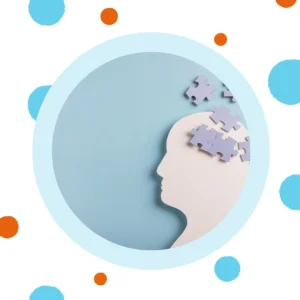
How Long Do Rechargeable Hearing Aids Last?
Your audiologist just recommended rechargeable hearing aids. Great choice. But naturally, you want to know: how long before you’re shopping again? The answer splits into
Home » Unveiling 10 Benefits of Hearing Aids

Many people believe hearing aids only help you hear better. While that’s certainly true, it’s just the beginning. Research continues to reveal that the many benefits of hearing aids extend far beyond basic hearing improvement. These small but powerful devices can improve brain health, enhance emotional well-being, reduce fall risk, and even help you live longer.
This guide dives deep into everything hearing aids can do for your health, safety, relationships, and overall quality of life.
Understand the differences between sensorineural and conductive hearing loss.
Table of Contents
ToggleA groundbreaking study published in The Lancet Healthy Longevity in January 2024 showed a strong connection between hearing aid use and longevity. The research, led by scientists at the University of Southern California, used data from nearly 10,000 participants over a 13-year CDC survey. The results were clear: individuals with hearing loss who regularly wore hearing aids had a 24% lower risk of early death than those who never wore them.
Lead author Dr. Janet Choi noted the reduced risk remained even after adjusting for factors like age, medical conditions, and socioeconomic status. Her conclusion? Addressing hearing loss can lead to improved quality of life and potentially a longer one.
Dr. Amit Shah, a geriatrician at the Mayo Clinic, adds context: “We know that untreated hearing loss leads to isolation, depression, and inactivity, all of which raise mortality risk. Hearing aids counteract those issues by keeping people connected and engaged.”
Find out the dangers of untreated hearing loss.
Falling is one of the most common and serious concerns for older adults. According to the CDC, one in four adults aged 65 and older reports falling each year. And among older adults, falls are the leading cause of injury-related hospitalizations and deaths.
What do hearing aids have to do with falling? More than you might expect.
A study in The Journal of the American Geriatrics Society found that adults aged 60 or older with hearing loss in both ears were 2.4 times more likely to fall if they didn’t wear hearing aids. The fall risk was significantly lower among consistent hearing aid users, defined as those wearing devices for at least four hours daily.
Why does hearing affect balance? Clinical audiologist Laura Campos offers three possible explanations:
Regardless of the exact reason, consistent hearing aid use can cut fall risk dramatically, which also helps maintain independence and avoid serious injury.

Several large studies have shown a strong connection between untreated hearing loss and cognitive decline, including dementia.
A 2024 study from the University of Southern Denmark analyzed data from over 573,000 individuals. It found a 13% higher dementia risk in people with hearing loss and a 20% higher risk in those who didn’t wear hearing aids. The researchers concluded that hearing aids could play a role in delaying or even preventing the onset of dementia.
Another study, funded by the National Institutes of Health and led by Dr. Frank Lin of Johns Hopkins University, tracked nearly 1,000 participants aged 70 to 84. Half received hearing aids and guidance on using them. The other half joined a general health education program. Over three years, the high-risk group that used hearing aids saw their risk of cognitive decline nearly cut in half.
Dr. Lin explained that untreated hearing loss leads to brain atrophy, particularly in areas responsible for sound processing. Regular hearing aid use helps stimulate those regions, keeping them active and healthy.
Hearing loss often leads to social withdrawal. When it’s hard to follow conversations, many people choose to stay home rather than engage with others. This behavior can spiral into chronic loneliness and depression.
A massive meta-analysis covering more than 675,000 people found that individuals with hearing loss were significantly more likely to experience depression and anxiety. The same analysis showed that hearing aid users reported lower levels of both.
A separate study from the Brazilian Longitudinal Study of Aging confirmed these findings. Participants who wore hearing aids had a lower risk of depression over time.
Dr. Nicholas Reed, a researcher at Johns Hopkins, emphasized that hearing aids also help preserve social networks: “We see less shrinkage in social circles and reduced loneliness over time. That’s powerful.”
Dr. Shah calls the connection bidirectional: people who are depressed are more likely to ignore hearing loss, and untreated hearing loss makes depression worse. Addressing hearing helps both conditions.
Clear communication is one of the most immediate and obvious benefits of hearing aids. Users report a noticeable improvement in their ability to follow conversations in quiet and noisy environments alike.
Whether you’re at a family dinner, in a staff meeting, or ordering coffee at a crowded café, hearing aids help you pick up tone, inflection, and emotion. This clarity builds stronger relationships and reduces the frustration and misunderstandings that often accompany hearing loss.
You’ll also notice less effort in listening. Your brain can relax instead of straining to interpret muffled or incomplete sounds.

People who hear better participate more. They join community events, attend gatherings, volunteer, and even travel more often. This active lifestyle, in turn, supports better mental and physical health.
Hearing aids remove the barriers that cause withdrawal. With devices properly fitted and programmed by a hearing care provider, social situations become enjoyable again. You’ll regain the confidence to interact with others without fear of missing important parts of the conversation.
Many users report a significant boost in self-esteem after getting hearing aids. Being able to follow conversations, respond appropriately, and navigate noisy environments helps people feel more in control and self-assured.
This new sense of independence extends to other areas of life as well. People feel more comfortable going out alone, making phone calls, and participating in meetings. The emotional relief is just as impactful as the physical one.

Music sounds richer. Movies make more sense. Birdsong, rain, and laughter return to the soundtrack of your life.
Many people with untreated hearing loss don’t realize how much enjoyment they’re missing. Once they wear hearing aids, they find new pleasure in entertainment, hobbies, and even casual conversations. That restoration of joy can ripple out into every part of your routine.
Sound isn’t just about communication. It’s also about staying alert.
With hearing aids, users can detect emergency warnings like smoke alarms, car horns, and sirens. Everyday environmental cues—like someone approaching or calling out—are easier to hear and interpret.
This boost in awareness reduces the risk of accidents and increases personal confidence when moving through the world.
Struggling to hear all day can be exhausting. The constant effort required to follow conversations leads to stress and mental fatigue, which in turn can affect sleep quality.
By improving auditory input and reducing listening effort, hearing aids may lead to better rest. With less daytime anxiety and frustration, many users find they fall asleep more easily and wake up feeling more refreshed.
The auditory system works closely with the brain. When hearing loss blocks sound, the auditory cortex receives less stimulation. Over time, this can lead to brain shrinkage in sound-processing areas.
Hearing aids help maintain auditory pathways and cognitive function. By continuing to “exercise” these brain regions, users may slow the decline of memory and attention over time.
Discover how to find the best hearing aids.
If you have hearing loss in both ears, you’ll typically benefit from two hearing aids instead of one. Here’s why:
Modern hearing aids are designed to be more than amplifiers. They include:
These features make hearing aids useful, customizable, and integrated into modern lifestyles.
It’s normal to experience an adjustment period. At first, everyday sounds might seem too loud or unfamiliar. Your brain needs time to relearn how to interpret these sounds.
Working with a qualified hearing care provider helps ease this transition. They can make small adjustments, provide support, and help you set realistic expectations.
Don’t be discouraged by early discomfort. Stick with it, and the rewards will follow.
At Injoy Hearing, we make the journey easier by offering:
We believe everyone deserves better hearing, better communication, and a better quality of life.
Learn how to avoid scams and buy hearing aids online safely.
Whether you’re new to hearing aids or ready to upgrade, Injoy Hearing is here to help.
Contact Injoy today and start hearing—and living—more fully.

Your audiologist just recommended rechargeable hearing aids. Great choice. But naturally, you want to know: how long before you’re shopping again? The answer splits into

You asked your spouse to repeat themselves. Again. The TV volume crept up another notch. Friends make jokes about your signs of hearing loss. These

You dropped serious money on Phonak hearing aids. Now you’re wondering how long they’ll actually work before you’re back at square one. Fair question. Hearing

The Sennheiser All Day Clear and Starkey Evolv AI serve different needs despite living in the same price neighborhood. One’s an over-the-counter option that works
To start your journey towards better hearing with confidence, Injoy is proud to offer a 45-day risk-free hearing aid trial. This allows you to experience the difference our hearing aids can make, ensuring they meet your expectations and fit your lifestyle perfectly.
Improve your hearing and improve your life today by contacting Injoy to learn more! Call (844) 914-3331

Need hearing aids? Explore our range of hearing aids and discover the best option for your lifestyle and Unique Hearing Needs.
Are you a current patient with us? We're here to help with any adjustments, repairs, or support you may need.